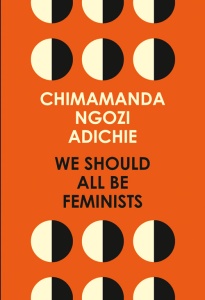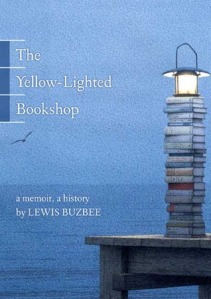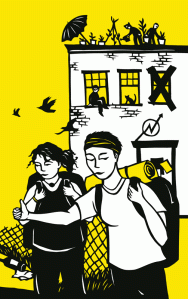 Title: Stop What You’re Doing and Read This!
Title: Stop What You’re Doing and Read This!
Author: Various
Summary: In any 24 hours there might be sleeping, eating, kids, parents, friends, lovers, work, school, travel, deadlines, emails, phone calls, Facebook, Twitter, the news, the TV, Playstation, music, movies, sport, responsibilities, passions, desires, dreams.
Why should anyone stop what they’re doing and read a book?
People have always needed stories. We need literature because we need to make sense of our lives, test our depths, understand our joys, and discover what humans are capable of. Great books can provide companionship when we are lonely, or peacefulness in the midst of an overcrowded daily life. Reading provides a unique kind of pleasure and no one should live without it.
In the ten essays in this book some of our finest authors and passionate advocates from the worlds of science, publishing, technology, and social enterprise tell us about the experience of reading, why access to books should never be taken for granted, how reading transforms our brains, and how literature can save lives. In any 24 hours there are so many demands on your time and attention – make books one of them.
Rating: ★★★☆☆ 3/5
Review: I love books about books, about reading and about the shared joy i experience with others who love books. This book, unfortunately, didn’t really live up to my expectations.
Very few of the essays in this book really stood out for me. Considering most of the authors are professional writers, i felt they did a pretty poor-to-average job of capturing the unique joy of reading we bookworms experience. Some of the essays focused on the author’s childhood and experience with books and reading as they grew up. A few included another focus, instead of the simply enjoyment reading brings, some chose to highlight how vital the ability is, how access to books is key. And though these were interesting and i agree with them, they didn’t evoke The Feeling or make a lasting impression on me.
The two essays i really enjoyed were the last two.
The Dreams of Readers by Nicholas Carr, though somewhat awkwardly written and including an abundance of direct quotes from others, captured the idea of books being both an escape to lose yourself in, and also an influence which transforms the reader. It talks about each reader bring their own experiences and interpretations to a book, and therefore each experiencing a different reading of the narrative. It’s a pretty simple and acceptable idea, but not one that’s often thought about or discussed.
To me that leads to questions about the subtleties and unique aspects of language; with such an array of connotations to words, meanings and inflection, can we ever know if we’re truly understanding each other?
Then Questions for a Reader by Dr Maryanne Wolf and Dr Mirit Barzillai takes the concept of reading transforming the the reader even further. They consider the history of the written word, how philosophers feared it spelt the end of individuals thinking for themselves, or thinking critically about the information presented to them. As we’ve proven since then, that’s not the case. But they also ponder the future of reading, with more reading happening online. When more words and information is only a click away and adverts and cat gifs are vying for the reader’s attention, how will this affect critical thinking?
In this case, I think the essay gives far too much credit and influence to the work and to the web. It assumes how the presentation of information changes is the only factor, rendering the consumer passive and easily influenced. I would argue the result depends more so on the reader. The reader has to want to critically engage with what they’re reading, and if they do, no amount of reddit or wikipedia links will deter them from that.
Overall, though, this book lacked the magic for me. It felt forced. It felt a little gimmicky. A “look, a book about books, you should read it!” attempt at selling a book, rather than a book that was genuinely about exploring people’s love of reading and trying to capture that feeling we get.



























